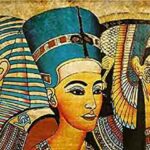Taken from Anatomy of the Spirit by Caroline Myss
My understanding of the chakra system developed out of my work as a medical intuitive. Sharing my work with readers of this book is like taking you into my mind and laboratory. For yourself take with you only what feels right to your heart and spirit and leave the rest behind.
When I analyse an illness in terms of energy medicine, I evaluate the entire patient, including physical symptoms and mental habits, relationships and diet, spiritual practice and career. Keep this same rule in mind as you study the human energy system. A complete energy evaluation has to include all seven chakras, regardless of the location of a physical illness, as well as all aspects of the patient’s life.
As you read about the chakras, you will see that the issues involved in chakras one, two and three are the ones where most people spend their energy. Not coincidentally, most illnesses result from a loss of energy from these three chakras. Even when an illness, like a heart condition or breast cancer, develops in the upper region of the body, its energy origin can usually be traced to stress patterns in issues of the lower three chakras, such as in marriage or partnership, family, or occupation. Emotions such as rage and anger hit us physically below the belt, while an emotion like unexpressed sadness is associated with disease above the belt. For instance, the major emotion behind breast lumps and breast cancer is hurt, sorrow, and unfinished emotional business generally related t nurturance.
Nurturance also has to do with the health of relationships, however, and relationships are primarily a first and second chakra issue. Thus several – if not all – the chakras have to be used to understand completely why a person has become ill.
Please note that the issues and illnesses listed here are to be understood as follows : negative extremes of any listed emotional issue can serve as a major influence in the development of any of the noted dysfunctions in each of the specified chakra descriptions.
Energy Anatomy
| Chakra | Organs | Mental, Emotional Issues | Physical Dysfunction |
| 1 | Physical body support
Base of spine Legs, bones Feet Rectum Immune system |
Physical family and group safety and security
Ability to provide for life’s necessities Ability to stand up for self Feeling at home Social and familial law and order
|
Chronic lower back pain
Sciatica Varicose veins Rectal tumours / cancer Depression Immune-related disorders |
| 2 | Sexual organs
Large intestine Lower vertebrae Pelvis Appendix Bladder Hip area |
Blame and guilt
Money and sex Power and control Creativity Ethics and honour in relationships |
Chronic lower back pain
Sciatica Ob/gyn problems Pelvic / low back pain Sexual potency Urinary problems |
| 3 | Abdomen
Stomach Upper intestines Liver, gallbladder Kidney, pancreas Adrenal glands Spleen Middle spine |
Trust
Fear and intimidation Self-esteem, self-confidence and self-respect Care of oneself and others Responsibility for making decisions Sensitivity to criticism Personal honour |
Arthritis
Gastric or duodenal ulcers Colon / intestinal problems Pancreatitis / diabetes Indigestion, chronic or acute Anorexia or bulimia Liver dysfunction Hepatitis Adrenal dysfunction |
| 4 | Heart and circulatory system
Lungs Shoulders and arms Ribs / breasts Diaphragm Thymus gland |
Love and hatred
Resentment and bitterness Grief and anger Self-centredness Loneliness and commitment Forgiveness and compassion Hope and trust |
Congestive heart failure
Myocardial infarction (heart attack) Mitral valve prolapse Cardiomegaly Asthma / allergy Lung cancer Bronchial pneumonia Upper back, shoulder Breast cancer |
| 5 | Throat
Thyroid Trachea Neck vertebrae Mouth Teeth and gums Esophagus Parathyroid Hypothalamus |
Choice and strength of will
Personal expression Following one’s dream Using personal power to create Addiction Judgement and criticism Faith and knowledge Capacity to make decisions |
Raspy throat
Chronic sore throat Mouth ulcers Gum difficulties Temporomandibular joint problems Scoliosis Laryngitis Swollen glands Thyroid problems |
| 6 | Brain
Nervous system Eyes, ears Nose Pineal gland Pituitary gland |
Self-evaluation
Truth Intellectual abilities Feelings of adequacy Openness to the ideas of others Ability to learn from experience Emotional intelligence |
Brain tumour / hemorrhage / stroke
Neurological disturbances Blindness / deafness Full spinal difficulties Learning disabilities Seizures |
| 7 | Muscular system
Skeletal system Skin |
Ability to trust life
Values, ethics and courage Humanitarianism Selflessness Ability to see the larger patter Faith and inspiration Spirituality and devotion |
Energetic disorders
Mystical depression Chronic exhaustion that is not linked to a physical disorder Extreme sensitivities to light, sound and other environmental factors |








